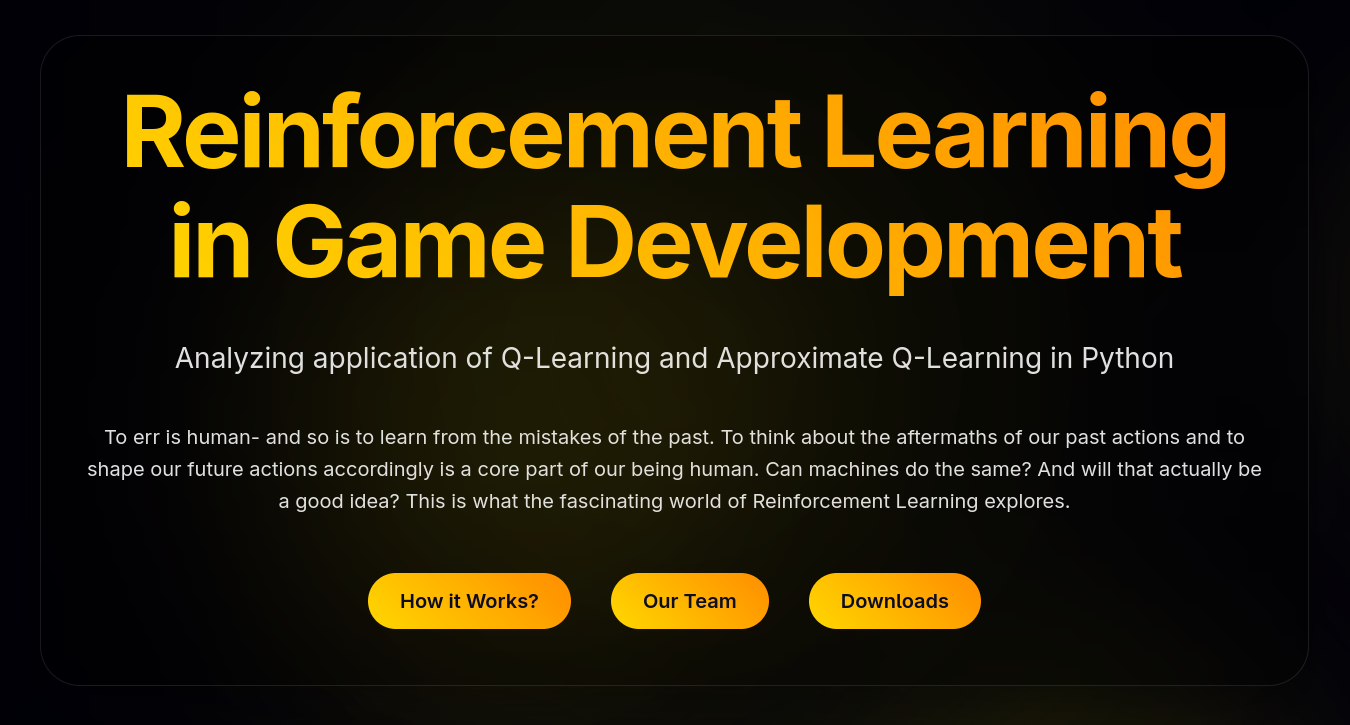Reinforcement Learning in Game Development
Here we analyzed how reinforcement learning works in Pacman game, and also created a simple Snake game.

Project Overview
This research project explores the application of reinforcement learning algorithms in game development. We conducted an in-depth analysis of how reinforcement learning works in the classic Pacman game and implemented our own Snake game using RL principles.
Key Features
- Pacman RL Analysis: Comprehensive study of reinforcement learning implementation in Pacman
- Snake Game Implementation: Custom Snake game built with RL algorithms
- Algorithm Comparison: Analysis of different RL approaches and their effectiveness
- Performance Metrics: Detailed evaluation of learning progress and game performance
- Interactive Demo: Web-based demonstration of the implemented algorithms
Technical Implementation
The project utilizes:
- Python: Primary programming language for implementation
- Reinforcement Learning Libraries: TensorFlow/PyTorch for RL algorithms
- Game Development: Pygame for game interface and visualization
- Data Analysis: NumPy and Matplotlib for performance analysis
- Web Deployment: Netlify for hosting the interactive demo
Research Components
- Literature Review: Study of existing RL applications in gaming
- Algorithm Analysis: Deep dive into Q-learning, Deep Q-Networks (DQN)
- Implementation: Custom Snake game with RL agent
- Pacman Study: Analysis of Berkeley’s Pacman RL project
- Performance Evaluation: Metrics and benchmarking
Key Findings
- Learning Efficiency: Comparison of different RL algorithms
- Game Complexity: Impact of game complexity on learning speed
- Reward Systems: Effectiveness of different reward structures
- Training Strategies: Optimal training approaches for game AI
Team Collaboration
This research project involved:
- Collaborative research and literature review
- Distributed implementation of different components
- Joint analysis and documentation
- Peer review and validation of results
Learning Outcomes
- Deep understanding of reinforcement learning principles
- Practical experience with AI in game development
- Research methodology and academic writing
- Team collaboration in research projects
- Web deployment and presentation skills
Future Work
- Extension to more complex games
- Implementation of advanced RL algorithms
- Real-time multiplayer RL environments
- Mobile game applications